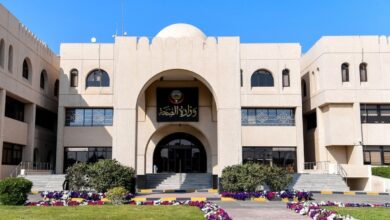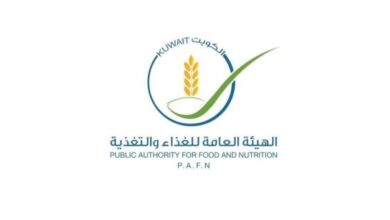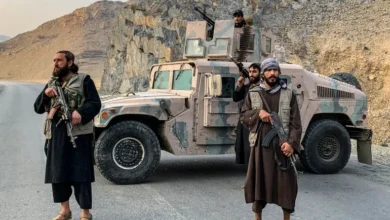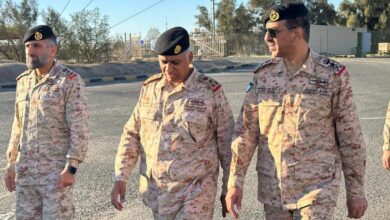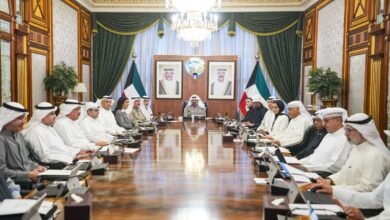Gulf solidarity is unified shield against threats; a safety valve for the region
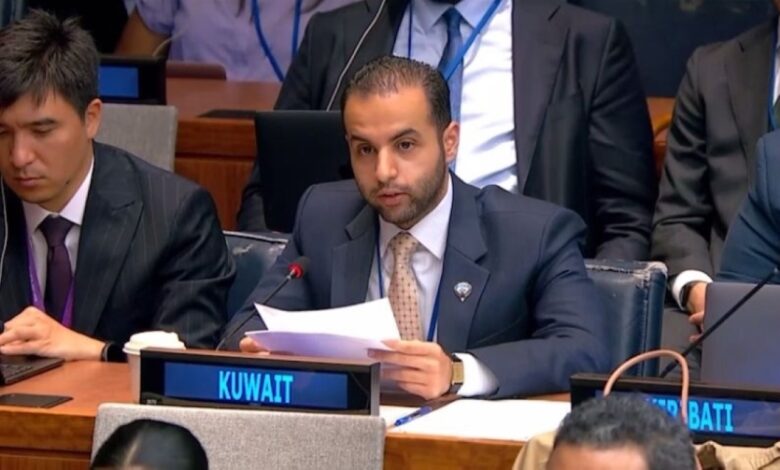
Kuwait, on behalf of the Gulf Cooperation Council (GCC) member states, affirmed that the security of the GCC states is not an open arena for experimentation, but rather a “red line that will not be crossed,” emphasizing that “the future will not witness tolerance for any attempt to undermine the security of the GCC states.”
This came in a speech delivered by the Third Secretary of the Permanent Mission of the State of Kuwait to the United Nations, Abdulaziz Al-Saidi, before the First Committee of the General Assembly under the item “General Debate.” During the speech, Al-Saidi affirmed that “Gulf solidarity will remain a unified shield against any threats, in defense of the peoples of the region and in the preservation of international peace and security.”
Al-Saeedi emphasized that the solidarity and cohesion of the Gulf group constitute a safety valve for the region’s security and stability, emphasizing that “any attack targeting a Gulf Cooperation Council (GCC) country constitutes a collective threat that requires deterrence and response.”
He pointed out that the work of the First Committee at its 80th session comes amidst dangerous conditions in the world and the Middle East region, which negatively impact international peace and security, most notably the repeated Israeli attacks on the Gaza Strip, Lebanon, Syria, and the State of Qatar, reports Al-Rai daily.
Al-Saeedi described these aggressive actions as a “flagrant violation” of state sovereignty and international law, and that they cannot be justified under any pretext, having caused horrific massacres and widespread destruction of infrastructure in flagrant violation of international humanitarian law and the most basic principles of human rights.
He said the GCC states regretted any procedural restrictions aimed at conveying the Palestinian voice within the United Nations, stressing that keeping UN platforms free from political pressure is a necessary condition for preserving the credibility of the collective security system.
Regarding the Iranian nuclear issue, Al-Saeedi also expressed the GCC states’ concern over developments related to the issue, warning that any further targeting of nuclear facilities would pose grave risks to international peace and security.
In this regard, he stressed the Gulf group’s firm conviction that any concerns related to Iran’s nuclear program should be addressed exclusively through peaceful and diplomatic means, welcoming continued regional and international efforts to revive the negotiating process and address all concerns in a way that enhances the security and stability of the region.
He warned that the erosion of confidence in the effectiveness of international agreements or questioning their usefulness threatens the foundations of the multilateral system and weakens the collective security system.
He stressed that strict adherence to relevant international agreements, most notably the Non-Proliferation Treaty of nuclear weapons, is the cornerstone of addressing this threat.
The GCC states reiterated the critical importance of establishing a nuclear-weapon-free zone and other weapons of mass destruction in the Middle East as a fundamental step toward lasting security and stability, noting that this goal was and remains an integral part of the 1995 indefinite extension of the Non-Proliferation Treaty.
In this context, the Kuwaiti diplomat called on the international community to assume its responsibilities and pressure the occupation to fully comply with international law, stressing the need for it to join the Non-Proliferation Treaty and subject all its nuclear facilities to the IAEA’s comprehensive safeguards system.
He expressed the GCC states’ aspiration to expand the scope and enable the Conference on Disarmament to fulfill its negotiating mandate as the forum for negotiating disarmament instruments, while stressing that the current stalemate is due to the lack of political will on the part of some states, not to shortcomings in institutional frameworks.
He urged strengthening international cooperation in monitoring and controlling the circulation of these conventional weapons, and providing technical assistance to countries wishing to develop their control systems to ensure their control is restricted to the state and its legitimate agencies.
He stressed that addressing the challenges of disarmament and non-proliferation requires a serious commitment from all parties, noting that the GCC states will continue their constructive work with the United Nations and all partners to establish a more just and balanced international order that puts an end to nuclear threats and guarantees the legitimate right of the peoples of our region to peace, development, and stability.
Follow The Times Kuwait on
X, Instagram and Facebook for the latest news updates








